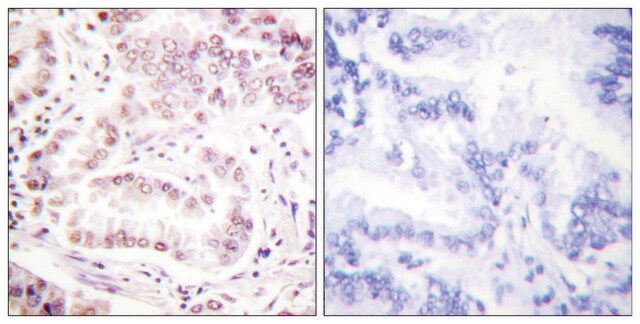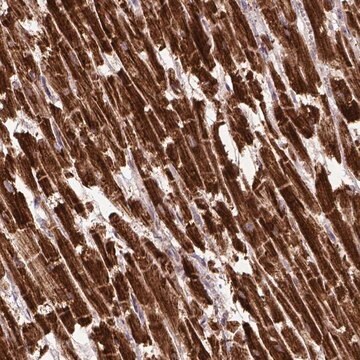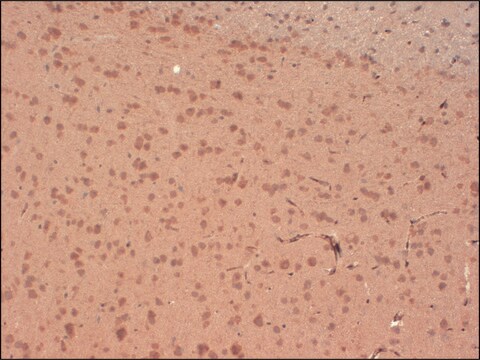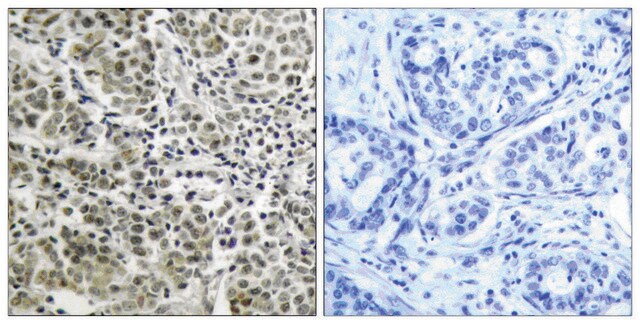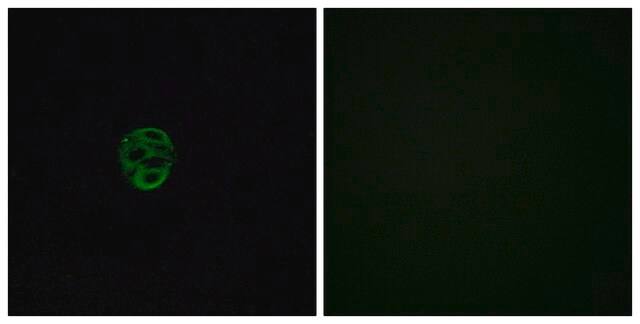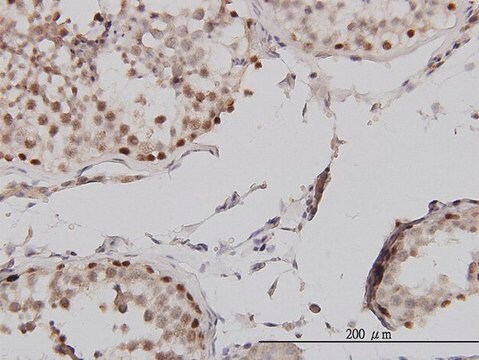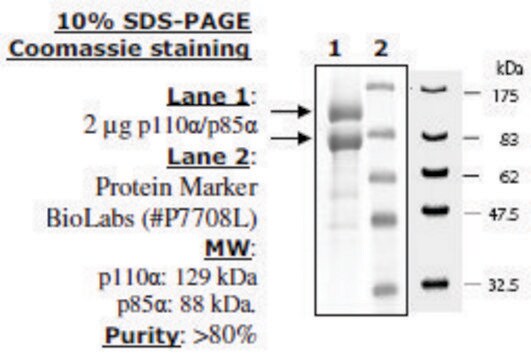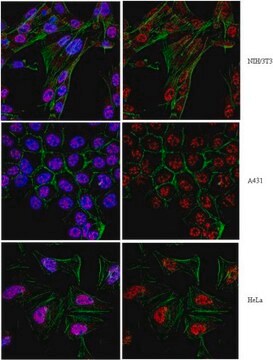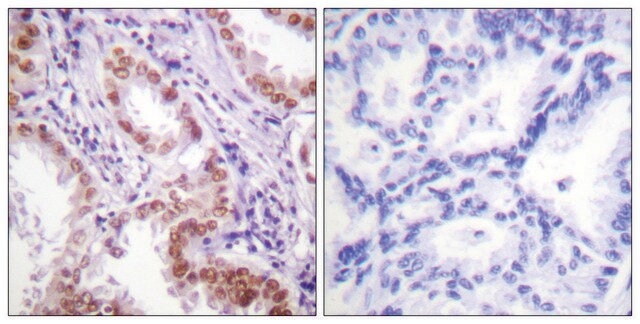SAB5300249
Monoclonal Anti-MLH1 antibody produced in mouse
clone 4C9C7, ascites fluid
Synonim(y):
COCA2, FCC2, HNPCC
About This Item
Polecane produkty
pochodzenie biologiczne
mouse
Poziom jakości
białko sprzężone
unconjugated
forma przeciwciała
ascites fluid
rodzaj przeciwciała
primary antibodies
klon
4C9C7, monoclonal
masa cząsteczkowa
85 kDa
reaktywność gatunkowa
human, monkey
metody
direct ELISA: 1:10,000
immunohistochemistry: 1:200-1:1,000
indirect immunofluorescence: 1:200-1:1,000
western blot: 1:500-1:2,000
izotyp
IgG1
numer dostępu UniProt
Warunki transportu
wet ice
temp. przechowywania
−20°C
informacje o genach
human ... MLH1(4292)
Immunogen
Mouse monoclonal antibody raised against MLH1
Postać fizyczna
Oświadczenie o zrzeczeniu się odpowiedzialności
Nie możesz znaleźć właściwego produktu?
Wypróbuj nasz Narzędzie selektora produktów.
Kod klasy składowania
10 - Combustible liquids
Klasa zagrożenia wodnego (WGK)
WGK 3
Temperatura zapłonu (°F)
Not applicable
Temperatura zapłonu (°C)
Not applicable
Wybierz jedną z najnowszych wersji:
Certyfikaty analizy (CoA)
Nie widzisz odpowiedniej wersji?
Jeśli potrzebujesz konkretnej wersji, możesz wyszukać konkretny certyfikat według numeru partii lub serii.
Masz już ten produkt?
Dokumenty związane z niedawno zakupionymi produktami zostały zamieszczone w Bibliotece dokumentów.
Nasz zespół naukowców ma doświadczenie we wszystkich obszarach badań, w tym w naukach przyrodniczych, materiałoznawstwie, syntezie chemicznej, chromatografii, analityce i wielu innych dziedzinach.
Skontaktuj się z zespołem ds. pomocy technicznej